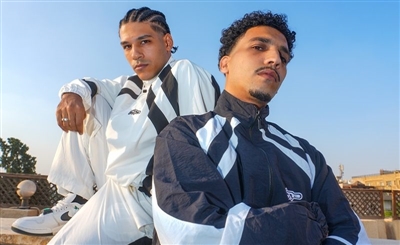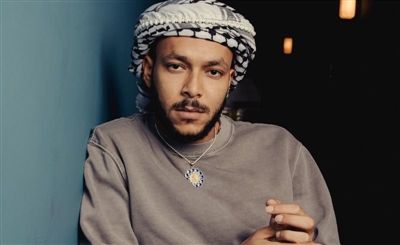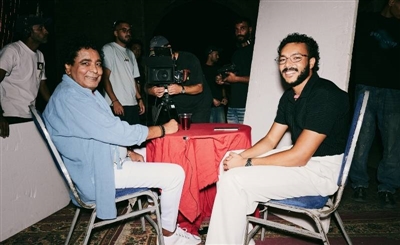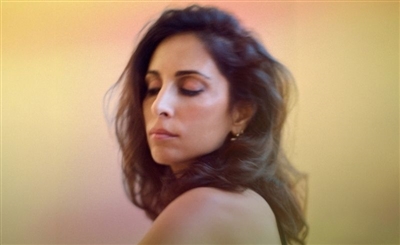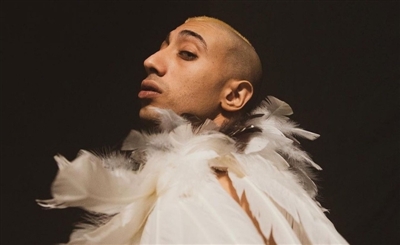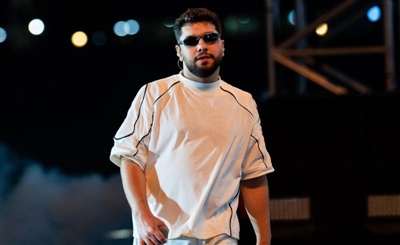20 Years of Dubfunk: The Egyptian DJ Who's Lit Up Dance Floors Across the World
International DJ/Producer Dubfunk AKA Mohamed Hegab has seen more success abroad than in his home country, playing nearly every continent in the world, we get him talking about his winning combo as he shares with us an extended mix celebrating 20 years of Dubfunk.
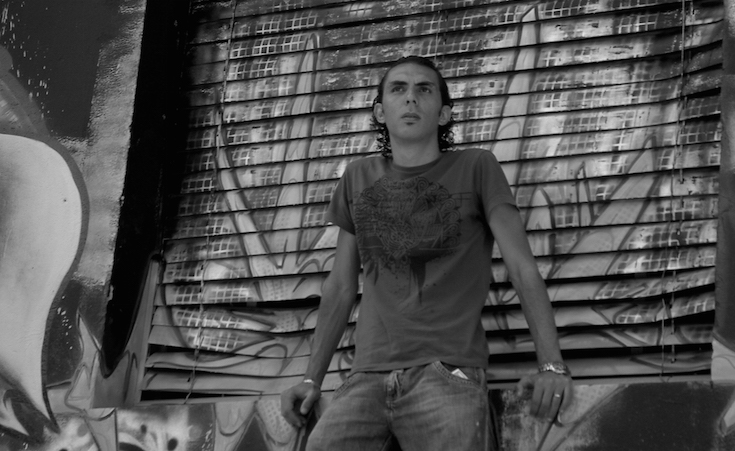
Mohamed Hegab AKA Dubfunk is an old school Egyptian DJ/Producer who has been playing music for 20 years now, to celebrate he has provided us with a three and a half hour mix including some of his most played tracks along the years. Dubfunk is also a producer and a successful one at that; he has released EPs on some of the world’s biggest labels such as Global Underground, Audio Therapy, his own Imprint Dyami - that he founded himself after moving to Switzerland - and several more. His releases were featured on some of the world’s biggest compilations such as Global Underground, Armada, and Audio Therapy, as well as mixing 5 compilations for Global Underground.
He toured the world, playing in South America, Europe, Australia and Asia, gigging at some of the world's biggest clubs namely Turnmills & Ministry of Sound in London, Bahrein & Big One in Buenos Aires, Chinese Laundry in Sydney, and Brown Alley in Melbourne just to name a few. We caught up with the man behind the funk to talk about his start, how he made it abroad in one of the world's coldest industries, and his future plans. We get him chatting about the winning package that got him to this point.
So 20 years in the business, you have come a long way, why and how did you get into electronic music?
I grew up mainly listening to a variety of Rock and Blues, it was in 1992 that I got introduced to electronic music through tunes from Orbital, Underworld, Chemical Brothers among others, it all started from there. At this point there wasn’t much knowledge in Egypt about Electronic Music apart from a very few people who used to gather for private house parties. Do you remember your first gig, tell us about how you managed to get that first booking?
Do you remember your first gig, tell us about how you managed to get that first booking?
My first full set gig was back in 1999, it was at Palladium (ex-Arena) in El Gouna for which I co-operated with a friend, it all happened by coincidence when the DJ didn’t show up, so I took over the decks and started playing. My first sort of booking came also by coincidence after I went to jam a bit at Pacha’s Bus Stop upstairs during a busy night in the main room downstairs back in 2004, I started playing for an empty room (which was expected to be so during the whole night) and within a couple of hours the room was packed, Adly Mestekawy then asked me to play a set the following House Nation in front of nearly 3000 people, that was kinda freaky.
In a parallel universe if you weren't DJing, what would you have been doing instead?
Actually being a Gemini, I can’t stick to one thing in my life, so this parallel universe actually exists in real life. I’ve done and still do other creative stuff such as Event Management, Visual Mapping Projections, Web Development and back in the day some 9 to 5 corporate jobs, though my favourite alternative would be event organising and Visual Mapping.
You were booked for several appearances over seas, one of which was at one of London’s hottest night clubs, Turnmills, how did you get that gig? And how did it feel stepping up behind the decks of one of the world’s biggest clubbing institutions?
I played Turnmills three times, twice with The Gallery Night and with Involved Events ran by Steve Coe, [Grammy-nominated Welsh DJ/Producer] Sasha’s father. My first international gig was 2006 at Turnmills, booked through a friend who was a fan of my music. It's as if it was yesterday, I was second to play after the warm up, followed by Hernan Cattaneo who was already supporting my tracks at that point. I felt a bit nervous as the venue is a legendary place to play at, but felt in my element when Hernan stepped behind me in the booth mid set and was dancing while giving me credit for the tunes I was playing, from then on I never looked back.
Your tracks were featured by some of the world's biggest DJs on some of the world's biggest compilations, the GU series, and Dave Seamen’s audio therapy, to name a couple. How did that happen?
Mandala my first hit track and third release was signed to Dave Seaman’s imprint by coincidence, it was the end of 2006, I sent new plugin improvisations to a friend in Ireland to listen to and took off on a South American Tour, he called me the night I arrived to Brazil and told me that he sent it to the A&R of Audio Therapy and that he & Dave Seaman loved it, and would like to sign me, and release remixes of it by Guy J & Patch Park.
Following that, I got commissioned by GU’s founder Andy Horsfield to do a couple of remixes including Lostep’s Villain and Eelke Kleine’s Monster of the Deep which reached No. 3 on Beatport General Top 10 Charts, then he asked me to mix Electric Calm V.4 compilation, followed by Synchronised V.2, Digitised V.2 & V.3 and finally 5 years of GU Music Triple mixed CD Compilation.
You took the plunge and moved to Switzerland to pursue your DJing career, and start your label, Dyami. What were the major differences you found between here and Europe, and how did it affect your journey?
Mobility to travel easily in Europe and easy intercontinental connections as I frequently travelled to play in South America and Australia. Also the accessibility and exposure to the latest technology without any hassle, and finally the underground scene in Switzerland which really helped me develop my style being around DJs and producers such as Luciano, Deetron, Ripperton, Quarion among others, the scene was full of great artists. But I'm back in Egypt now and I'm staying for a while to see how things go.
Dyami records, your label, saw many releases supported by some of the world's best DJs namely the hit single “Torro Remote – Prog 100” supported by nearly every big name in the scene, further releases by Dana Bergquist, Cid Inc, Daniel Portman to name a few, tell us more about the process of founding your label and how did it succeed.
It was straight forward, I started the label and Hisham Zahran joined as A&R alongside Arielle as the Label Manager. It wouldn’t have been possible to run the label without the entire team, though the label had faded in 2011 for various reasons, it’s being revived this year.
Tell us more about Dubfunk in the studio, what kind of equipment do you use, and how long would it usually take for you to turn an idea into something solid?
During the period I was actively producing I was also actively touring, so most of my tracks were started on the go with the help of my Laptop, Ableton, Logic and my Korg Micro. Once I return to the studio, I had some bits of hardware such as Nord Clavia Lead, Akai APC40, Native Instruments Kore, M-Audio Ozone & Genelec Studio Monitors. Time always depends on my mood, most of my best tunes were straight forward live production, main structure and sound design would take 45 to 90 min, the trick is you have to listen to it several times in different moods and settings so it takes me like 3 days to mix it down, finalise it and master it.Festivals or clubs?
Each has it’s own pleasure, it all depends on the crowd.
House or Techno?
Both.
Favourite DJ?
Many, but I listen to Mira, Satori, and Lee Burridge, a lot.
Favourite track at the moment?
Edu Imbernon - Bitter Fate (Fur Coat Remix).
Favourite night of your career?
11.06.2010 @ Darkbeat – Melbourne alongside Chris Fortier, it was my birthday. I played an extended four-hour set and at the end of it Chris stopped the music and a birthday cake came floating over the crowd till it reached the booth as they sand Happy Birthday, I was so touched.
If you could play in one city anywhere in the world, which one would you pick?
I’ve played already all my favourite cities: Melbourne, Buenos Aires, London, and Berlin. I think Tokyo’s legendary Womb Club would be the one I’m looking forward to.
Do you see any diamonds in the rough in our local talent, if so who caught your eye the most?
There’s loads of talented DJs at the moment contrary to before, Baher, Hafez, Ouzo, Sebzz to name a few. They can definitely perform within the international arena, they just need to be given the right chance. Since you are one of Egypt's old school giants (although it seems you are more famous abroad than here), compared to Europe, where do you see the scene in Egypt and the Middle East standing today as opposed to 20 years ago? Are we improving or getting worse?
Since you are one of Egypt's old school giants (although it seems you are more famous abroad than here), compared to Europe, where do you see the scene in Egypt and the Middle East standing today as opposed to 20 years ago? Are we improving or getting worse?
There’s improvement compared to international taste, I can vouch for the Nacelle crew for their efforts, they know what they’re doing, maintaining standards of clubbing and entertainment. I really wish that everyone would maintain the same standards to build the right crowd, that's what it’s all about. On the MENA level, Morocco is easily competing world wide, Lebanon would be third. I'm optimistic.
Follow Dubfunk on Facebook here, and check out his Soundcloud and Mixcloud for more.
- Previous Article Getting Abyusif
- Next Article DGTL: Much More than a Music Festival
Trending This Month
-
Nov 24, 2025



